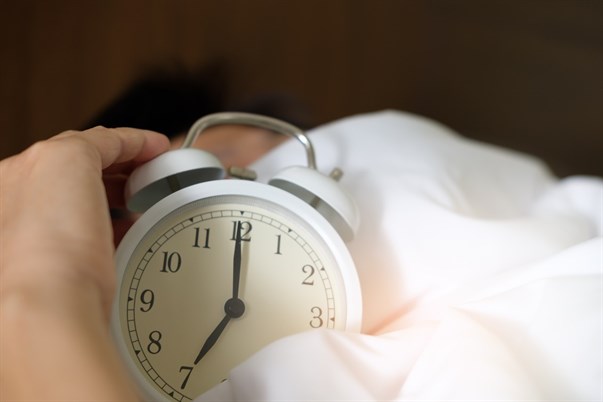Circadian Rhythm and Affects Your Health

It is known that the circadian clock regulates your wake-sleep cycle and is basically the body’s natural timekeeper, but did you know that it also affects other things like hunger, thirst, mood, and body temperature?
Because the circadian rhythm impacts these functions, disturbances to the rhythm, or the genes that cause the rhythm, can cause many medical issues. Issues ranging from low productivity and depression to insomnia and diabetes. Disturbances can include switching from day shift work to night shift work, long term exposure to artificial light, excessive traveling through different time zones, and other things that could cause disruptions to what would be considered a normal wake-sleep cycle.
Research groups in Israel are currently focusing on chronobiology, the study of biological rhythms, to further prove the “extreme importance of the circadian clock on many different processes in neurobiology and metabolism.” Through their research, these are a few of the contributions researchers have been able to make to help understand how circadian rhythm affects the wellbeing of people.
Synchronizing Your Clock and Your Meals
Oren Froy, associate professor of neuroendocrinology and metabolism, and director of the Institute of Biochemistry, Food Science and Nutrition at the Hebrew University has found that a great way to achieve a strong metabolism and weight loss is by syncing your meal times with your body’s natural clock.
“In nutritional sciences, we usually teach that energy consumed and energy expended equals your bodyweight but here we saw the timing factor was very important,” Froy tells ISRAEL21c. “If you synchronize with your circadian clock that controls all your systems, it makes sense.”
“We measured circadian rhythms in diabetics and saw the clock is not functioning well, but when they follow that diet they ameliorate the damage,” Froy says. “We’re working with the Health Ministry on updated guidelines based on our findings.”
Professor Gad Asher and the molecular sciences lab at Weizmann Institute of Science in Rehovot came to a similar conclusion as Froy while studying the accumulation of lipids in the livers of mice without a functioning body clock.
When feeding was restricted to nighttime hours, there was a dramatic 50% decrease in overall triglyceride levels.
“Hyperlipidemia and hypertriglyceridemia are common diseases characterized by abnormally elevated levels of lipids in blood and liver cells, which lead to fatty liver and other metabolic diseases,” said Asher. “Yet no currently available drugs have been shown to change lipid accumulation as efficiently and drastically as simply adjusting meal time.”
Jetlag
In another study performed by Asher’s lab, by adjusting the oxygen concentration in the air, the circadian clocks of mice were effectively reset to a six-hour jump ahead in daylight hours. This basically means that airline companies could, in theory, eliminate jetlag and disturbances to passengers circadian rhythms by regulating cabin air pressure.
Success in Bone Marrow Transplants
According to a study published by immunology and biological regulation researchers at the Weizmann Institute in collaboration with colleagues in Brazil and Canada, stem cells within bone marrow follow daily cycles of light and darkness. With this information in mind, by adjusting the timing of stem-cell harvesting according to these cycles, one could possibly increase the success of bone marrow transplants.
While studying mice, Tsvee Lapidot and Karin Golan found that between the hours of 11 am and 11 pm, there were peaks in stem-cell production. During these daylight peaks, there were more differentiated stem cells produced. Nighttime peaks saw more undifferentiated cells that were doubly efficient in reconstituting the marrow of the mice compared to the cells collected during the daylight peaks.
Through melatonin treatments, Lapidot and Golan were able to reverse the peaks. This suggested that the possibility to increase the success of transplants in human patients by pretreating bone marrow donors with melatonin or other circadian regulators.
The Natural Alarm Clock and Diabetes
Most creatures in this world can be separated into two categories: nocturnal and diurnal (humans). The hormone melatonin is a large contributor when it comes to differentiating the two. Melatonin is produced only at night and signals diurnal species to go to sleep while alerting nocturnal species to wake up.
Prof. Noga Kronfeld-Schor, chair of the Tel Aviv University School of Zoology and head of its Ecological and Evolutionary Physiology Laboratory says, “The biological clock is the same in nocturnal and diurnal animals but is translated in the opposite way.”Schor and other collaborators studied the circadian rhythm and its relationship with disorders like depression and diabetes by using sand rats, which are diurnal like humans.
“Because we eat during the day, insulin should be produced during the day and glucose at night; everything has to be done at the right time. If you disrupt or de-synch the clock by working night shifts or eating at night it disrupts that homeostasis."
Light pollution can also have an effect on circadian rhythm because the body relies on daylight to synchronize it to a regular day-night cycle as well as seasonal changes. Because of the excessive use of artificial light, the signals normally created by daylight are not as strong as they used to be.
“So we see circadian rhythm disruption becoming common and causing medical problems and sleep disturbances in humans, animals, and plants exposed to artificial light. We see birds that lay eggs at the wrong time of the year or stay awake at night; we see some animals experiencing a disruption in the timing of reproduction or hibernation.”
Currently, Schor and her lab are experimenting with different light spectrums and intensities at night to reduce the harmful effects artificial light has on various species.
